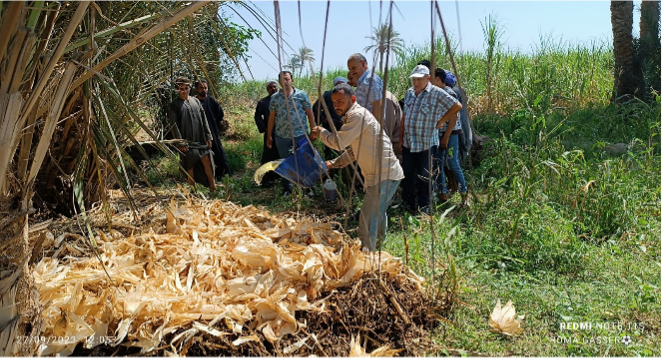By Dr. Nahed Ayoub, Ph.D.
Climate change is a pressing challenge for all countries across the globe, including Egypt and the MENA region. Egypt is already suffering from water scarcity, and climate change exacerbates this problem. Rising temperatures and changing precipitation patterns lead to more frequent and severe droughts, intense heatwaves, and flooding in coastal areas. This has a devastating impact on agriculture, food security, human health and well being. Moreover, the region’s unique ecosystems, including coral reefs, mangroves, and wetlands, are under threat due to the impact of climate change on cultural heritage, natural beauty, and the economy.
The bishopric of public and ecumenical services (BLESS), the developmental arm of the Coptic orthodox church in Egypt, has two interventions related to adaptation and mitigation of climate change. The agriculture program focusses on small farmers, and the environment program targets people living in poverty in areas all over Egypt.
The rural programme empowers marginalised groups of smallscale male and female farmers. It introduces knowledge and skills about new techniques that lead to greater production, more rewarding economic returns, and that preserve environmental balance. The programme also addresses interrelated impacts on climate and fresh water. It establishes eco-friendly agricultural practices and supports smallscale farmers with machinery and supplies to ensure better land productivity, crop efficiency, lower costs, and environmental maintenance.
The environmental programme improves the conditions of communities living in poverty to develop an environment free of pollution. BLESS believes that each person has the right to live in a clean and healthy environment. This programme ensures sustainable development and preserves environmental rights such as adequate, clean water, for future generations. This is achieved through encouraging positive environmental attitudes and behaviours, developing solutions and alternatives for environmental problems and promoting the use of low-cost renewable energy technology. The programme also increases community resilience by fostering adaptation to the impact of climate change.
COP28 is crucial in addressing the effects of climate change on Egypt and other countries. Key issues include reducing greenhouse gas emissions to limit global warming to 1.5 degrees Celsius above pre-industrial levels, transitioning to low-carbon economies, and increasing adaptation finance.
Developing countries such as Egypt and others in the MENA region need significant financial and technical support to build resilience. This will require investments in water management, agriculture, and infrastructure. Decisions at COP28 can ensure a sustainable and resilient future for the region. It is essential that all countries work together to reduce emissions, support adaptation, and build a more sustainable and equitable world.
Dr Nahed Ayoub, an ACT COP28 Delegate, has a Ph.D. in water management, a master’s degree on the impact of global warming on food security, and a professorial master’s of gender and development. She is a BLESS program advisor on environmental, rural, and other development programs.

